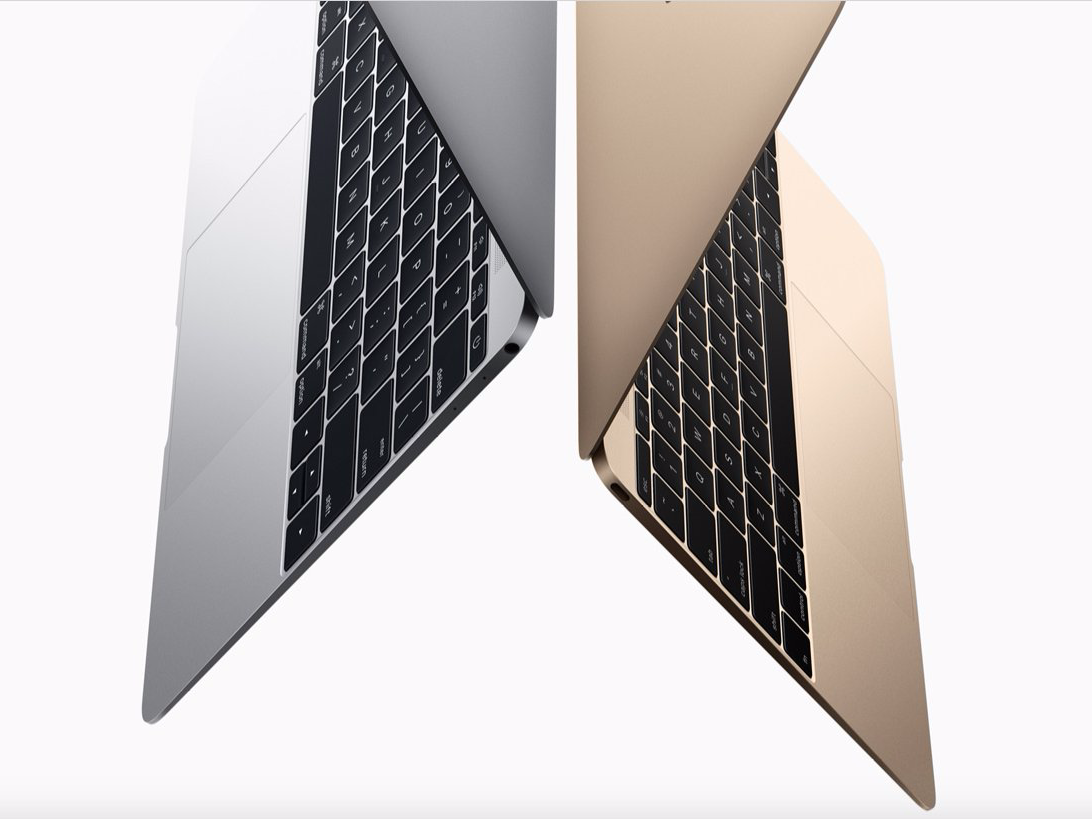Apple is giving its 12-inch MacBook laptop a spec bump.
The company said at its annual WWDC keynote on Monday that it is refreshing the ultra-thin notebook with Intel’s latest “Kaby Lake” processors, which should bring slight boosts to speed and battery life.
Along with that, Apple also mentioned the notebook will now get up to a 50% bump in performance to its solid-state drive storage.
If you can afford it, you can also upgrade the boost the MacBook’s performance by doubling the amount of memory to 16 GB – previously, you were maxed out at 8 GB.
Finally, Apple also said the MacBook’s keyboard has been updated to be more like its equivalent in the MacBook Pro. That means it should feel a bit clickier and more responsive than before.
On the whole, though, the pitch here remains the same. You're still getting a very slim, nicely-built chassis with a high-resolution "Retina" display and a lone USB-C port.
Apple still positions the MacBook for people who are okay with good enough performance in a package that's easy to take on the go. If you want an Apple laptop that's powerful enough to do heavier work, you'll have to look to the MacBook Pro.

More specifically, the new MacBooks use Intel's lower-power "Y-series" chips. Those aren't as strong as the more traditional "U-series" Intel Core chips you'd see in a MacBook Pro - or some Windows laptops around the MacBook's size - but they've generally improved to the point of respectability over the past couple of years.
Kaby Lake is a relatively small upgrade over Intel's previous generation of chips. It brings minor gains in overall performance and power efficiency, so it's an improvement, but not the most visible one. It works more smoothly with 4K video, too, but since the MacBook's display isn't that sharp, those increases will likely go unnoticed by the majority of buyers.
One pain point critics have had with the MacBook is its webcam, which shoots at a grainy 480p resolution. Unfortunately, that hasn't changed here.
Another thing that's stayed the same is price: The MacBook will still start at $1,299 - which will get you a model with a entry-level Core m3 chip and 256 GB of storage - and reach up to $1,949 as you go up the specs ladder.
Either way, the notebook is still expensive for the relatively limited power and ports it's packing; comparable Windows laptops typically go for less.
But it is well-made, and with the Mac becoming less and less relevant to Apple's bottom line, the company's laptop business seems to be focusing exclusively on the high-end.
The new MacBook models are available to order through Apple's store now, with retail availability starting on June 7.

